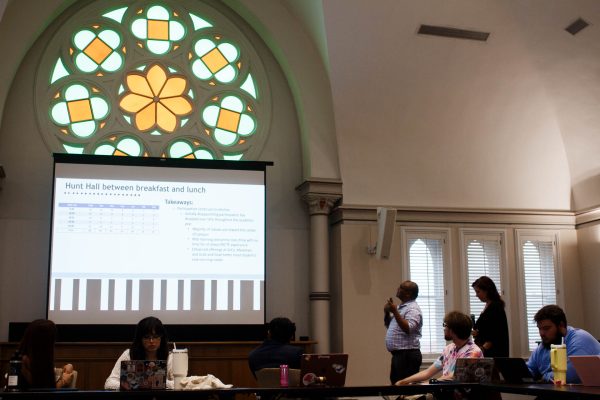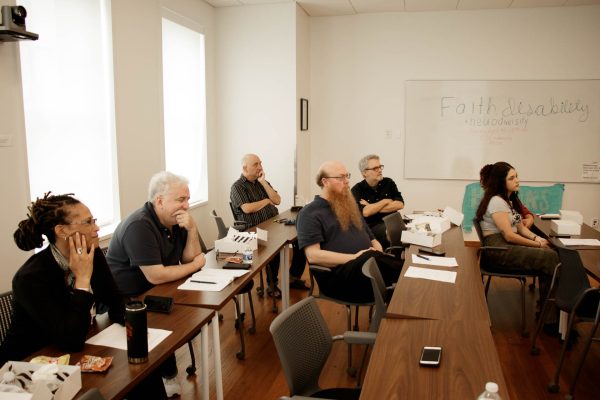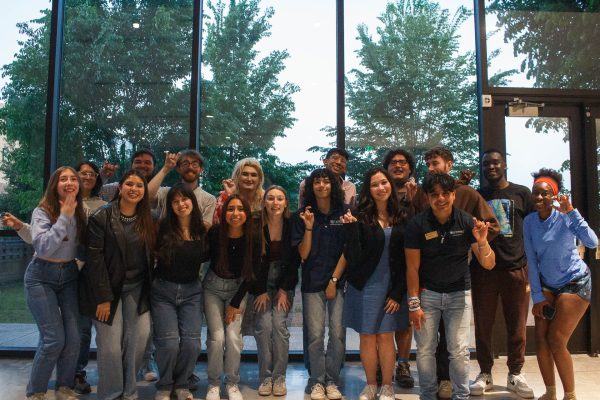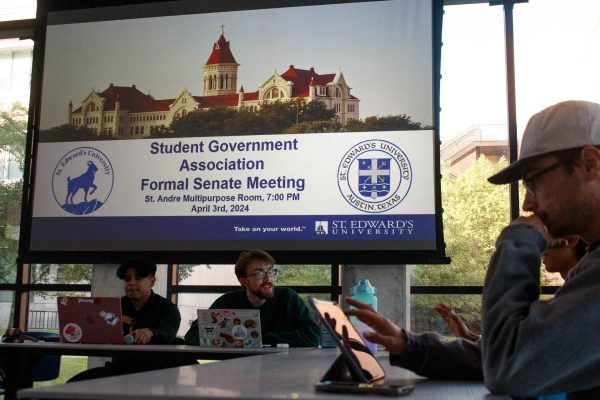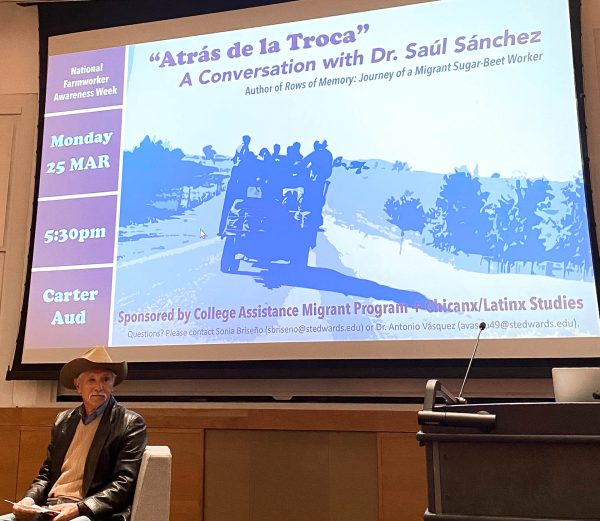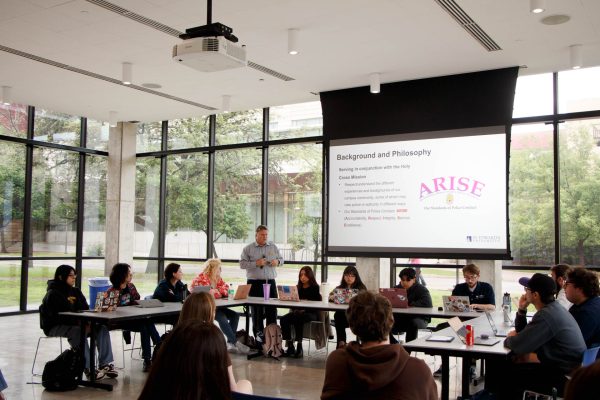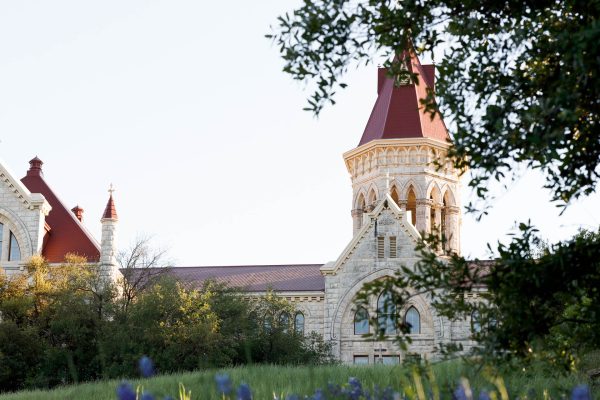Lecturer encourages student leadership
A lecturer recently visited St. Edward’s University to encourage students to become leaders and to speak about the role of leadership in poverty and sustainable development.
Steve Vetter, President and CEO of Partners of the Americas, visited St. Edward’s on March 9 as part of the Kozmetsky Center’s monthly focus on poverty and sustainable development.
Vetter attended classes and events around campus through the Kozmetsky Center throughout the week of his speech.
Vetter began his March 9 talk by asking how many in the audience wanted to become transformational leaders.
“Transformational leaders are not accidents. Declare that you want to lead — that’s a powerful act. Very few from your generation have been willing to do that,” Vetter said.
Vetter continued by saying that leaders must first believe there are solutions to all problems without underestimating those problems.
Vetter stressed the importance of a vision for leaders to unite people around and focused on education as an example. Vetter said that in order to build a stable, growing, wealthy society, the United States should invest in education and help people secure assets, which the country did in the past by helping veterans secure college degrees and houses.
“Before World War II, only 2 percent of people had a college degree. Today, 23.7 percent of Americans have a college degree. That fell from a high of 27 percent. Why can’t we get to 50 percent?”
Vetter gave examples of transformational leaders, but focused particularly on teachers.
“If you call a teacher a teacher, you disguise by language what they really are. They are transformational leaders,” Vetter said. “We need to give them that power.”
Vetter also highlighted the disparities in leadership training. He noted that both the military and corporate America frequently invest more in leadership development than higher education does.
Vetter’s history with leadership development includes participating in an in-depth study funded by the W. K. Kellogg foundation at the University of Maryland that looked into creating a unified theory of leadership development. Vetter said that he wanted a simple explanation of leadership development.
“[Leadership] is about relationships,” Vetter said. “It is about who you know. But it’s really about who you get to know.”
Still, Vetter cautioned his audience about leadership.
“It’s not fun being a leader. [People] will heap criticism on your shoulders. You will develop a thick skin,” Vetter said. “We think of leaders as admirals, generals, university professors — but we need leaders at all levels. I want you to think about leadership at every level of your life. It’s a proactive thing that you do.”
A member of the audience asked if Vetter was currently mentoring any young people or aspiring leaders.
“I’m here before all of you. I’m here to support all of you,” he said. “I’m still trying to repay all the great leaders that helped develop me.”


